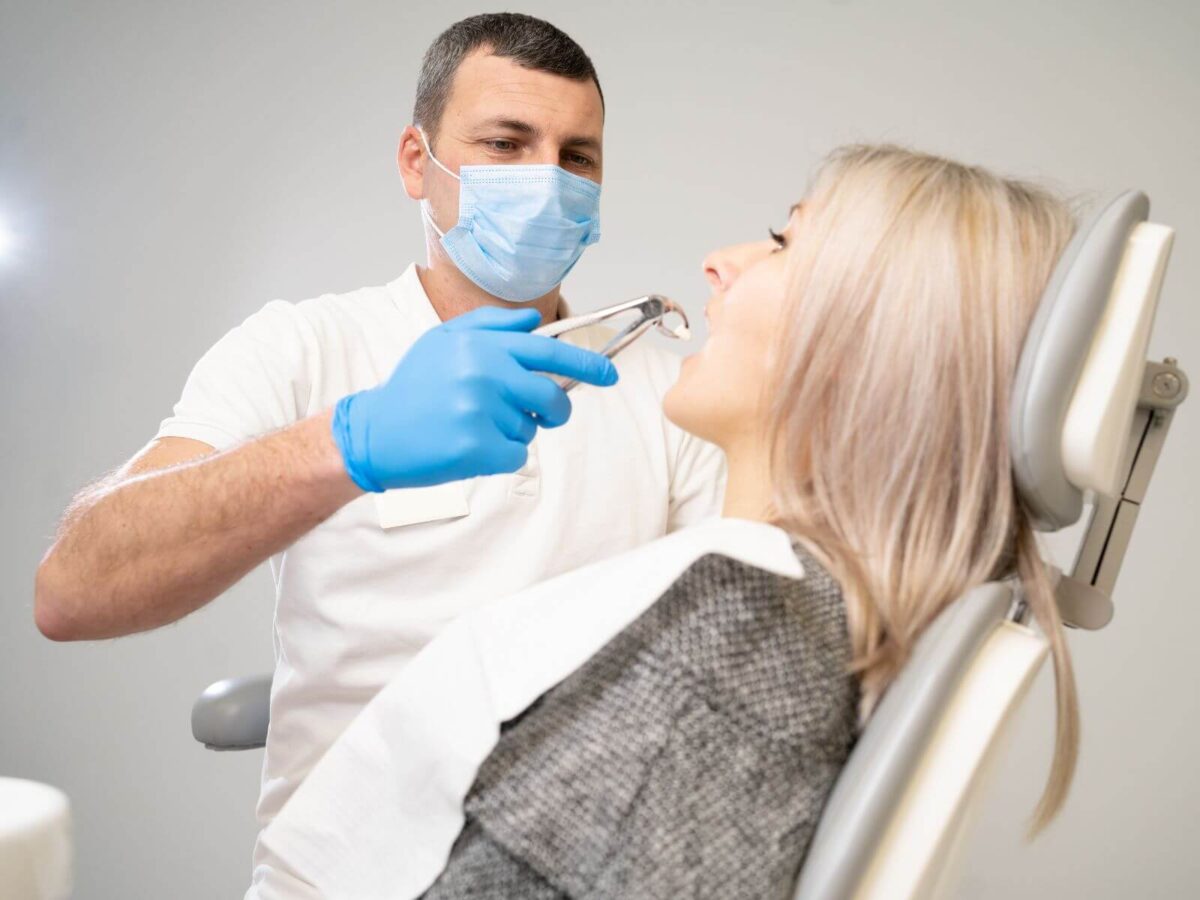River Walk Dental Orthodontics
Blog
Dental hygiene tips for healthy teeth & gums

Is Soreness After a Dental Exam Normal?
Dental examination may cause a certain degree of tenderness or discomfort after the check-up. Sometimes they are present after a simple dental checkup such as cleaning, checking for oral health of the gums, or any other dental procedures. But just how much ‘normal’ pain and soreness should one expect and when should one worry about impending injury? In this article, we will explain why it is sore after dental examination, what to expect after visiting San Antonio Dentist TX, and when to seek the next appointment.
Why Stiffness Happens After Dental Examination?
Oral exam is comprehensive and your dentist and your dental hygienist will assess your oral health beginning with your teeth and gums. This might involve scaling and clowning, probing, and comprehensive scaling, and taking photographs. All these procedures which are also good for your dental health may sometimes cause discomfort especially if you have sensitive teeth or gums.
Dental exam discomfort is usually short-lived and mild in most cases, but if it is not tranquil on its own, it calls for medical attention. However, if the pain is severe or the soreness continues for more than 3 or 4 days then you should consult your San Antonio Dental Office TX.
Reasons For Pain After A Dental Check-Up
There are several causes of tenderness or pain in the mouth after visiting the dentist. Here are the most common causes:
1. Deep Cleaning or Scaling
The sensation you may feel afterward in your teeth or gums is due to instructions such as if you have undergone deep cleaning or scaling during your exam. These are more invasive than the normal prophy and may involve working below the gum line to clear the area of enhanced tartar development.
This may lead to transient gum swelling and redness or sometimes minor bleeding may occur.
2. Flossing and Cleaning
Despite caring about your teeth through brushing and flossing every morning and at night, professional teeth cleaning is more efficient. This can be painful for the client because the hygienist may reach places that have not been brushed in a while.
Further, in case you do not floss your teeth often, the harsh flossing done during a dental check-up may make the gums sensitive.
How Long Does Soreness After a Dental Exam Last?
Most of the discomfort or soreness that is experienced when going for a dental examination only lasts for a day or two. It can be a momentary gum soreness or sensitive teeth that may develop soon; it would go away on its own.
Any discomfort is easily treated with pain medications available without a prescription and a simple water rinse with salt.
Nevertheless, if the soreness persists for over three days or gets worse, there may be something wrong. At such times, it is good to seek advice from your San Antonio Dental Office TX because there may be an infection or any other dental problem.
How to Make The Discomfort Disappear After A Dental Exam
If you’re feeling sore after your dental visit, there are several steps you can take to relieve the discomfort:
1. Take Pain Relievers
These can be bought without a prescription This may make you uncomfortable afterwards, but it is advised that you take over-the-counter pain relievers such as ibuprofen or paracetamol. Always use the medication as prescribed by the doctor and talk to your dentist if the pain has not been relieved.
2. Rinse With Saltwater
One thing that can help ease swollen gums is a saltwater rinse; this can be done normally with warm saltwater. A good example is rinsing your mouth with warm water containing a teaspoon of salt, and swirling it in your mouth for approximately half a minute. It’s best to do this two to three times a day to find relief.
3. Avoid Extreme Temperatures
This is especially true if a patient takes hot or cold foods and drinks after the dental exam. Standing – Avoid hot meals and beverages until the soreness is out of the system.
When to Contact Your San Antonio Dentist TX
Of course, a certain amount of discomfort is expected after a dental exam; however, some symptoms should make you consult your dentist. These include:
- Severe Pain: If the pain is severe or persists even if you use any over-the-counter medication it is advisable to see your dentist.
- Prolonged Swelling: Such a swelling; that takes several days to subside may signify an infection or another problem.
- Bleeding: It is all right to experience some bleeding after deep cleaning, but heavy bleeding is not okay. If your gums still bleed after the process, then do not hesitate to get in touch with your San Antonio Dental Office TX.
- Fever: Swelling or a fever is never normal, especially after a dental examination. They insist that should you develop a fever, it may be due to infection, and you will need to see a dentist. Incorporating ideas on avoiding soreness after the various possible future dental exams. To avoid muscle soreness in the next appointment for a dental checkup, it is important to often brush your teeth in between these visits.
Conclusion
Generally moderate discomfort after a dental exam is normal and does not indicate any harm. While most soreness usually lasts only a short while and can be addressed with some home remedies.
However, it’s advised to take precautions and see your San Antonio Dental Office TX if the pain continues or becomes more severe.
Preventing problems from getting worse is the goal here; with proper maintenance of your teeth, you avoid frightful trips to the dentist in the future. For more information on pain or if you have any questions or concerns after the examination, your San Antonio Dentist TX is only a phone call away.
